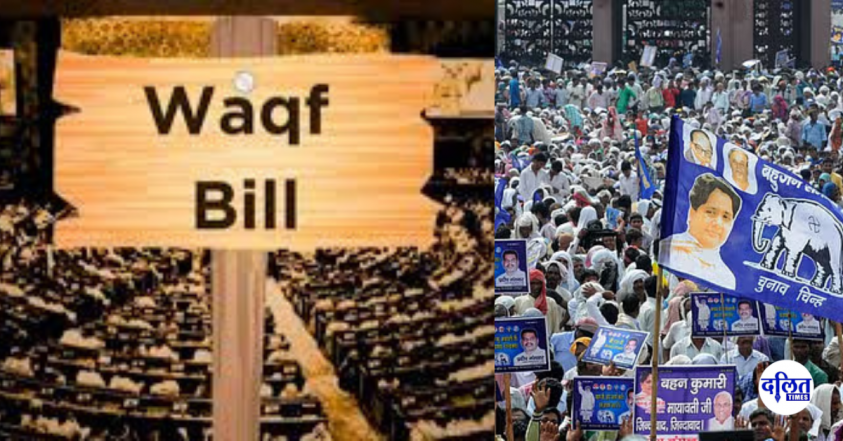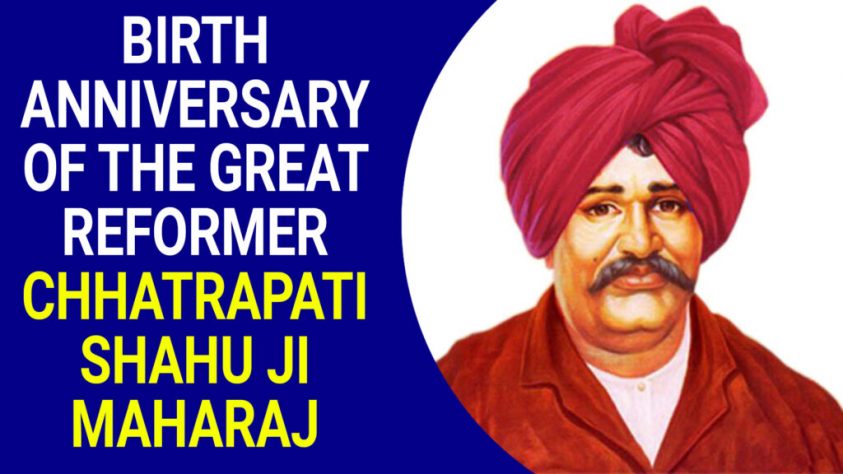Mayawati, the national president of the Bahujan Samaj Party (BSP) and India’s most prominent Dalit political leader, has consistently advocated for the upliftment of marginalized Muslim communities, particularly the Pasmanda sections. Her efforts go beyond symbolism and are rooted in policy, representation, and alliance-building within a Bahujan-Muslim unity framework.
In a political climate charged with communal polarization and majoritarian statecraft, where dissent is often silenced and minority voices are consistently marginalized, it takes rare courage and moral clarity to stand with the oppressed. Mayawati, the national president of the Bahujan Samaj Party (BSP) and a towering leader of the Bahujan movement, has once again demonstrated principled leadership by opposing the Waqf Amendment Bill, 2025, and standing firmly with the Muslim community against the misuse of state power.
A Bahujan Leader With Constitutional Backbone
Mayawati is not just the most powerful Dalit leader in post-Ambedkar India; she is a living symbol of the Ambedkarite dream—a vision where the oppressed govern with dignity and justice. Under her leadership, the BSP has continuously challenged dominant caste hegemony and majoritarian politics. Now, as the government introduces the Waqf Amendment Bill, 2025—a bill many fear could further erode minority rights and facilitate arbitrary takeover of Waqf properties—Mayawati’s clear and uncompromising opposition is a much-needed assertion of constitutional morality.
Political Representation for Muslims
- BSP is among the few national parties that consistently give electoral tickets to a significant number of Muslim candidates, especially from Pasmanda (backward and marginalized Muslim) communities.
- In several Assembly elections, BSP fielded over 100 Muslim candidates, with the intent to ensure proportional political representation.
Emphasis on Pasmanda Identity
- Mayawati has publicly supported the demand for sub-categorization within Muslim reservations, distinguishing between Ashraf (upper-caste) Muslims and Pasmanda Muslims, much like SC/ST/OBC classifications.
- She supports caste census and data-based affirmative action, which would help Pasmanda Muslims get their due share in jobs, education, and schemes.
Inclusion in Government Schemes
- During her tenure as Uttar Pradesh Chief Minister (2007–2012), Muslim-dominated localities were included in Dalit welfare programs, ensuring they benefited from housing schemes, scholarships, and basic infrastructure.
- She ensured equity in budget allocations for areas with high Muslim populations, particularly in healthcare, education, and rural development.
Welfare-Oriented Governance
- BSP governments under Mayawati built schools, hospitals, and roads in Muslim-majority areas that had long been neglected.
- She introduced special scholarship schemes for minority students and provided grants for madrasas and Urdu education without compromising on secular values.
Firm Stand Against Communal Politics
- Mayawati has consistently spoken against communal violence, NRC-CAA policies, and the targeting of Muslim youth under draconian laws.
- During events like Muzaffarnagar riots (2013) or anti-CAA protests (2019–2020), she publicly condemned state violence and demanded justice for Muslim victims.
Opposition to Waqf Misuse
- In the context of the Waqf Amendment Bill, 2025, Mayawati clearly stated BSP’s opposition to any misuse of the law that may harm Muslim institutions or target the community under the guise of reform.
- She has demanded transparent Waqf reforms that empower the Muslim community, rather than weaken their institutional autonomy.
Ideological Commitment to Bahujan-Muslim Unity
- From the party’s inception, BSP has upheld the slogan: “Bahujan Hitay, Bahujan Sukhay”—which includes Dalits, Adivasis, OBCs, and Muslims.
- Mayawati frames Muslim marginalization as part of the broader anti-caste, anti-hegemony struggle, aligning it with the Ambedkarite vision of social justice.
BSP’s Unflinching Position
Mayawati made it unequivocally clear: BSP does not support the Waqf Amendment Bill, 2025 In a recent statement. She warned that if the government misuses the amended law to target the Muslim community or to seize Waqf land unlawfully, her party will stand with the victims and raise their voice in Parliament and beyond.
This is not just a political statement—it is a gesture of solidarity. In an atmosphere where political parties often dilute their stands to avoid upsetting the majority, BSP’s declaration comes as a rare moment of truth-telling and community assurance.
What the Waqf Amendment Bill Means
The Waqf Amendment Bill, 2025, seeks to make sweeping changes to how Waqf properties are administered, giving increased powers to the state and central Waqf Boards—which, in many states, are heavily influenced by the ruling party. Critics argue the amendments open the door for:
- Easier nullification of Waqf claims;
- Increased bureaucratic control over Waqf assets;
- Weakened community autonomy in managing endowments;
- Risk of communal misuse under the guise of “reform.”
In essence, it threatens the autonomy and integrity of Muslim religious and charitable institutions, especially in states where communal politics dominate.
Mayawati’s Politics of Social Justice
Mayawati’s stand must be seen in the larger context of Bahujan solidarity. Her opposition is not rooted in political calculation but in Ambedkarite ethics: when any marginalized community is targeted, it is the responsibility of fellow oppressed communities to resist.
The BSP’s position draws from a legacy of unity between Dalits, Adivasis, backward castes, and minorities—a legacy that has been under systematic attack by both casteist and communal forces. By challenging the Waqf Bill, BSP is reclaiming that alliance and reminding India of the power of moral coalition.
In Defense of Constitutional Secularism
Mayawati’s voice is also a reminder that India’s secularism is not passive tolerance—it is active protection. The Constitution does not merely allow minorities to exist; it guarantees their right to thrive. The Waqf Board and its properties are not just about religious administration—they are lifelines of welfare, especially for economically marginalized Muslims. BSP’s stance is a call to all progressive forces to join hands in defending these constitutional guarantees, not just in the interest of one community, but in the defense of the republic itself.
A Leader for Our Times
Mayawati’s initiatives for the upliftment of Muslims are not isolated acts but part of a visionary, inclusive political ideology. In a deeply divided polity, she continues to be one of the few voices advocating for Pasmanda justice, Muslim representation, and inter-marginalized unity. In a time when secularism is under assault, Mayawati’s legacy offers a roadmap for democratic resistance, inclusive governance, and true empowerment of India’s most oppressed.
At a time when the political landscape is dominated by silence, complicity, or outright hostility towards Muslims and other minorities, Mayawati has shown what it means to lead with courage. The BSP’s rejection of the Waqf Amendment Bill, 2025, is a testament to its commitment to Bahujan unity, social justice, and constitutional values. In her quiet strength and firm resolve, Mayawati has once again proven that she is not just a Dalit icon, but a true national leader—one who speaks when it matters most, and always stands with the oppressed.



